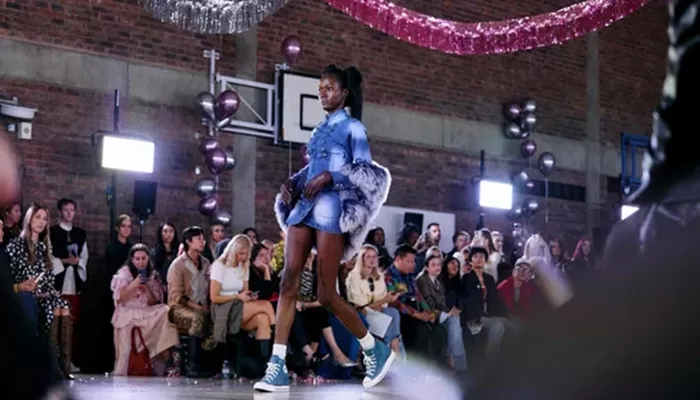London Fashion Week will become the first major fashion event to prohibit the use of exotic animal skins, starting in 2025. This landmark decision will require designers to exclude materials from animals such as crocodiles, alligators, and snakes from their collections, setting a new standard in the fashion industry.
The British Fashion Council (BFC) announced the ban, which marks a significant step in promoting animal rights and sustainable practices within fashion. David Leigh-Pemberton, the BFC’s deputy director for policy and engagement, revealed the move during a speech in Parliament this week. This decision builds on the BFC’s earlier pledge to eliminate fur from the event, a commitment that was first made by CEO Caroline Rush in 2018 and formally implemented in December 2023.
London Takes the Lead on Sustainable Fashion
With this ban, London cements its position as a leader in sustainable fashion among the “big four” fashion weeks—New York, London, Milan, and Paris. London was the first to ban fur and now becomes the first to tackle exotic animal skins. This bold move aligns the city with smaller, progressive fashion events like Melbourne and Copenhagen Fashion Weeks, which have already embraced similar policies. In contrast, Milan and Paris continue to showcase fur, creating a noticeable divide in global fashion standards.
The ban may be easier to enforce in London due to the influence of emerging designers who typically do not rely on exotic animal skins. However, the use of feathers on clothing remains a challenge. Often used as trim, feathers can be hard to distinguish between real and synthetic, and concerns about mislabeled products have surfaced. In 2023, brands like Boohoo and Selfridges were found to have misidentified real feathers as faux.
Sustainability at the Core of the Ban
The BFC’s move is part of a broader initiative by the Institute of Positive Fashion, which aims to improve social, environmental, and sustainability standards across the industry. This initiative reflects changing attitudes in London’s fashion scene, with increasing pressure from animal rights activists to eliminate harmful materials from the industry.
Animal rights organizations, such as People for the Ethical Treatment of Animals (PETA), have long campaigned for the ban of exotic skins, holding protests and demonstrations at fashion events. Yvonne Taylor, PETA’s Vice President of Corporate Projects, commended the BFC’s decision, saying, “Tens of thousands of PETA supporters contacted the BFC, calling for this progressive move. We salute the compassionate British designers who helped usher in this policy.”
London’s groundbreaking decision sets a new precedent for major fashion events, leading the way toward more ethical and sustainable practices in the industry.
Related topics:
- HANHGAI TANG Marks 30 Years with Stunning Everyday Essentials
- Heart Evangelista Shines on the Cover of Vogue Hong Kong
- Ka‘ana Mana‘o: Fashion is Always in Style

